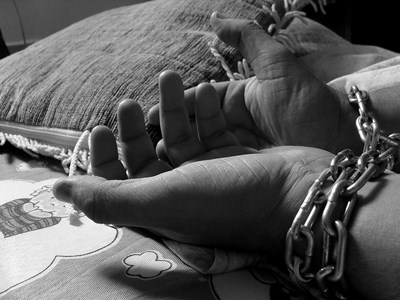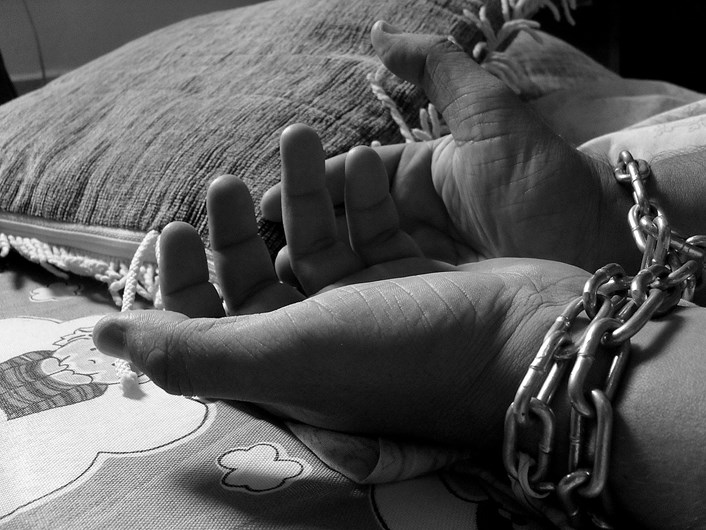21 Nov 2016
Police scale up operations into modern slavery
Since May 2015, police have led 200 operations into modern slavery targeting around 900 offenders exploiting people for labour, sex, domestic servitude or involvement in criminal operations. The police chief leading the response says that there will be an increase in the scale of targeted police activity following investment into more specialist investigators and a national intelligence centre.
The operations identified 1689 potential victims; predominately adults who are often vulnerable through homelessness, isolation, or drug or alcohol dependency. 40 child victims featured within these operations.
Labour exploitation was most commonly found with 93 operations into people being forced to work against their will in construction, car washes or factories.
60 operations targeted sexual exploitation, predominately forced prostitution within brothels. 14 were against domestic servitude involving sexual abuse and forced marriage. 12 operations were against child sexual exploitation and four were for sham marriages. There were also operations involving forced cannabis cultivation and shoplifting.
Over half of the operations involved offenders and victims from either Romania or Britain with cases also involving offenders and victims from Poland, Lithuania and Vietnam.
British victims were seen across most forms of exploitation, particularly labour exploitation. British offenders were involved in all forms, often working with offenders from another nationality to harm others from overseas.
The 200 operations have led to 20 convictions and 24 charges so far with other investigations ongoing. Police in the UK work closely with the National Crime Agency and police in other countries on joint investigations, which can lead to charges across multiple jurisdictions; there are currently 16 live joint operations.
£8.5 million has been provided by the Home Office through the Police Transformation Fund to invest in the provision of more than 50 dedicated analysts, specialists, and investigators in regional and central teams; the establishment of a Joint Slavery and Trafficking Analysis Centre to develop intelligence; and increased ability to draw on expert knowledge to support police in building cases and securing convictions. Funding will help to develop evidence-based guidance for officers and enable sharing of best practice and learning.
National Police Chiefs’ Council Lead for Modern Slavery, Chief Constable Shaun Sawyer said:
“The Home Office estimated between 10,000 - 13,000 victims of modern slavery in 2013 but this number could be far higher, particularly if we include young people in the UK who are exploited and forced to work in drug dealing operations.
"The Haughey Review identified the passion, determination and effort of police investigators operating in this area, but also identified challenges in consistency across forces, training, operational outcomes and strategic focus and in the training they received.
“Modern slavery investigations are fraught with complexity and challenge, and testimony from victims is hard won. Some victims do not see themselves as such. Bringing cases through the criminal justice system can take several years, demanding significant police resources.
“This investment will deliver a stronger service for victims by better equipping police with knowledge and tools to keep up with the threat.
“Most operations were instigated after a tip off from a member of the public about the visible signs of exploitation – anti-social behaviour, overcrowding or squalid living conditions, indicators of prostitution or a concern for welfare. These reports to us are vital so we need anyone with concerns to share them by calling 101 or anonymously through the Modern Slavery Helpline on 0800 0121 700."
Mark Burns-Williamson, Police and Crime Commissioner for West Yorkshire and Chair of the National Anti-Trafficking and Modern Slavery Network said:
“The trafficking of people and modern slavery are abhorrent abuses of human rights and police and crime commissioners are working together with their police forces, partners and communities to tackle these criminal activities.
“In February this year I launched the National Anti-trafficking and Modern Slavery Network at the Home Office, which brings together PCCs and other stakeholders to provide a strategic meeting framework nationally to raise awareness of tackling human trafficking and modern slavery in all its forms.
“These crimes are a major challenge for all of us, but there is a commitment to tackle these issues and prevent harm and suffering. National regional and local partnerships are being established and strengthened and working together with our partners, businesses and communities we can and will make a difference”.
Further information:
Home Office Chief Scientific Adviser, Professor Bernard Silverman, has estimated that in 2013 there were between 10,000 - 13,000 potential victims of modern slavery in the UK. - https://www.gov.uk/government/uploads/system/uploads/attachment_data/file/383764/Modern_Slavery_Strategy_FINAL_DEC2015.pdf
Contact information
Communications office
By phone: 0800 538 5058
By email: press.office@npcc.police.uk


